Profile: Miele plays vital role in eradicating superbugs from care homes says director Les Marshall
Nearly half of Miele’s sales in the UK are made to the care sector and sales and marketing director, Les Marshall, puts its success down to the “important part plays in preventing superbugs such as MRSA” in care homes.
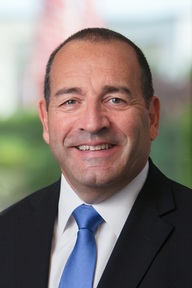
One of the ways in which bacteria can spread is through soiled sheets and clothing so “staff in care homes need to be confident that the clothes and bed clothes they are washing will be disinfected. When new health and safety legislation or guidance comes in we always see a rise in sales,” he says.
Miele washing machines conform to the requirements of The Care Standard Act 2000 and The Health Service Guidelines (95)18 and default temperatures meet the Department of Health's recommendations, however if necessary “our products have the flexibility to increase holding temperatures”.
Miele is a German based manufacturer and as well as producing high-end domestic appliances, it also produces commercial laundry equipment including machines that have wet cleaning programs, laboratory glassware washers, dental disinfectors and medical equipment washers.
Its best-selling range for care homes is the Little Giants which are 5.5kg and 6.5kg washers and dryers. Miele’s Little Giants are specifically designed for continuous operation in a small-business environment.
“We sell thousands of these every year. They are the leading machine in this category,” according to Mr Marshall. “They are small capacity machines, easy to use and they are stackable. They have a very fast cycle and they can last for up to 15 years.”
Miele responds to what people need. Care homes in London employ a lot of people with English as a second language who have been asking Miele for a machine with a dial with simple instructions. “We have a range of washers with a simple dial as this is something that care homes in the capital have asked for.”
Commercial machines are sold to the care homes by dealers through the Miele Professional Partners scheme which is very much Mr Marshall’s brainchild.
“When I started working at Miele 12 years ago, I came up with the idea of the Miele Professional Partners scheme which consists of a network of dealers who are fully trained and authorised to advise, sell, install and service Miele Professional equipment. “I presented the idea to the chief executive and put together a network of dealers. We have 27 dealers who are part of the network. We have reduced the number from when we first started as we began with 40. Some have retired but the ones we have retained have got bigger and bigger and our turnover is double what it was when we first started,” he says.
“We asked the dealers what they would like if they began working with us. They said most manufacturers sell against them as well as working with them. So we agreed not to do this. We also provide sales training on products and we worked with a finance company on their behalf. We are about to run some workshops for online sales and how to protect their margins.”
Commercial washers and dryers are a must for any care home but many try to cut corners and make do with machines that are intended for domestic use only.
“There are a number of care homes that use domestic washers when they shouldn’t. Some aren’t aware that they shouldn’t be doing this and some do it because of the cost of buying a commercial washer and because they think they can get away with a domestic washer.”
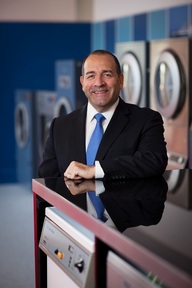
Mr Marshall warns that these care homes are running a risk of having their laundry shut down.
“The water board has regulations for care homes which care for people with incontinence which stipulate the type of air gap a washing machine should have to prevent any contamination. If the care home is not abiding by this, the water board will close the laundry down and without a laundry, a care home is in serious trouble. Selected washing machines are category 5 WRAS (Water Regulations Advisory Scheme) approved,” he says.
Green energy and being environmentally friendly, is very much a big priority for Miele.
“We are looking at how we can get our current machines to use less water and we have recently launched heat pump dryers which use up to 60 per cent less energy than traditional Miele condenser dryers. Customers have told us that in 18 months they have already made savings. In five years, I can see heat pump dryers taking over from condenser dryers.”
This year, Miele is launching a machine that it claims will offer huge savings for care home owners. These are H20 dryers, which use the heat that has been generated by the water in the wash, instead of electricity. It is launching two sizes of these dryers in February.
“We’ve carried out customer satisfaction surveys and care home owners are more interested in a machine’s longevity and ease of use than its green credentials but if you produce a machine which is going to use up less energy but also save them money, they are very interested,” he adds.
Last year, Miele GB had its best year in terms of sales despite the recession and money being tight.
Mr Marshall believes “people are more considered in their purchases at the moment as they are looking for a machine that will last.”
In terms of the future of the care sector, he thinks it seems very positive for care homes.
“I am starting to see my own relatives move into care homes and these new retirement village concepts are very interesting.
“I think more work needs to be done to promote care homes as we don’t often hear about all the good work that goes on and there are hundreds of care homes out there that are doing a fantastic job.”
In terms of the future with Miele, he says: “we are constantly looking to develop our relationship with our dealers. We are about to issue them all with tablets with different software which they will be able to demonstrate to customers, illustrating how our machines work. We also work very closely with our national account customers such as Anchor.
“We are a very big manufacturer but we are constantly in dialogue with our customers to make sure we do what they expect of us. We are also looking at our service and how we can improve the whole customer journey.”
Interesting facts
First job: Salesman for a sports company
Favourite book: When the wind changed: The Life and Death of Tony Hancock by Cliff Goodwin
Favourite film: The Count of Monte Cristo
Favourite piece of music: Eclectic
What is the best present you have received: Set of golf clubs
Last holiday: Barbados
Latest Profiles News
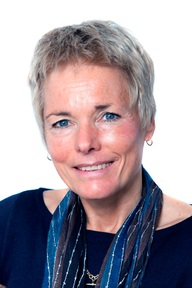 05-Sep-16
Being chief executive of a care home provider is a 'huge responsibility and privilege'
05-Sep-16
Being chief executive of a care home provider is a 'huge responsibility and privilege'
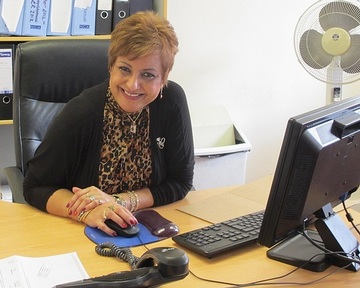 31-Mar-15
Profile: 'Both local and national Government needs to put its money where its mouth is,' says chair of the National Care Association
31-Mar-15
Profile: 'Both local and national Government needs to put its money where its mouth is,' says chair of the National Care Association
 16-Dec-14
Profile: Care home turnaround specialist reveals some of the tricks of the trade
16-Dec-14
Profile: Care home turnaround specialist reveals some of the tricks of the trade
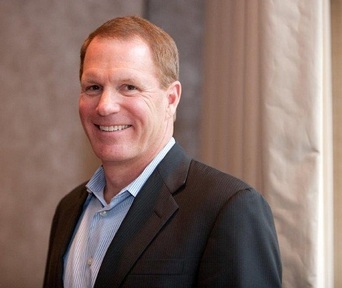 01-Dec-14
Profile: ‘People should not be dreading going into a care home – they should be looking forward to it,’ says care home boss
01-Dec-14
Profile: ‘People should not be dreading going into a care home – they should be looking forward to it,’ says care home boss
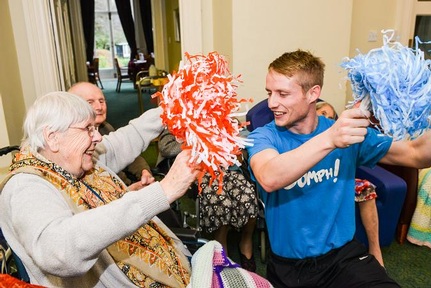 07-Oct-14
Exercise is key to 'changing the care sector' says provider of exercise therapy in care homes
07-Oct-14
Exercise is key to 'changing the care sector' says provider of exercise therapy in care homes